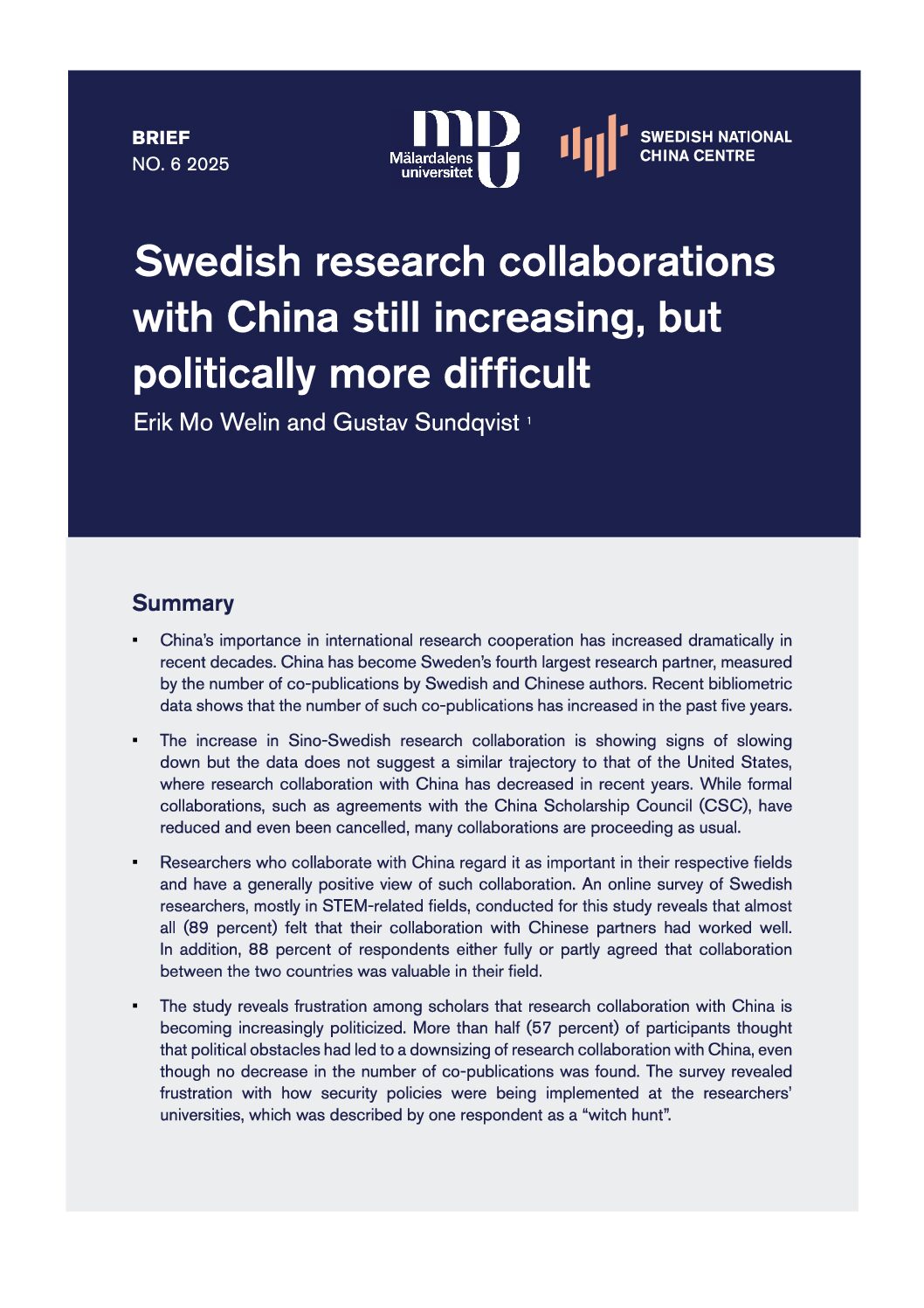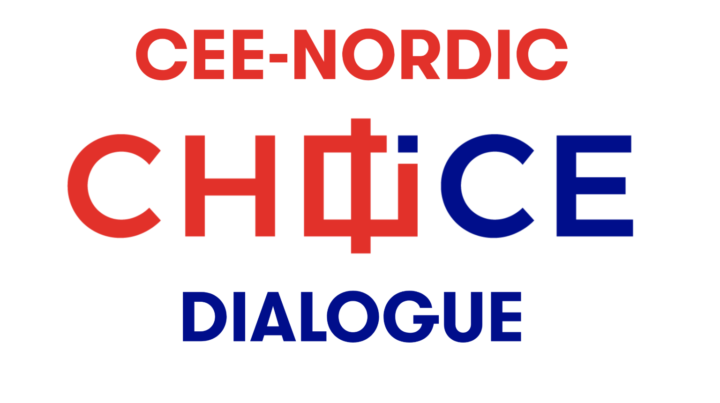14 November, 2025
Swedish research collaborations with China still increasing, but politically more difficult

Fideli Sundqvist
Summary
- China’s importance in international research cooperation has increased dramatically in recent decades. China has become Sweden’s fourth largest research partner, measured by the number of co-publications by Swedish and Chinese authors. Recent bibliometric data shows that the number of such co-publications has increased in the past five years.
- The increase in Sino-Swedish research collaboration is showing signs of slowing down but the data does not suggest a similar trajectory to that of the United States, where research collaboration with China has decreased in recent years. While formal collaborations, such as agreements with the China Scholarship Council (CSC), have reduced and even been cancelled, many collaborations are proceeding as usual.
- Researchers who collaborate with China regard it as important in their respective fields and have a generally positive view of such collaboration. An online survey of Swedish researchers, mostly in STEM-related fields, conducted for this study reveals that almost all (89 percent) felt that their collaboration with Chinese partners had worked well. In addition, 88 percent of respondents either fully or partly agreed that collaboration between the two countries was valuable in their field.
- The study reveals frustration among scholars that research collaboration with China is becoming increasingly politicized. More than half (57 percent) of participants thought that political obstacles had led to a downsizing of research collaboration with China, even though no decrease in the number of co-publications was found. The survey revealed frustration with how security policies were being implemented at the researchers’ universities, which was described by one respondent as a “witch hunt”.
- Examples of poor implementation of security policies, as perceived by Swedish researchers, include potentially discriminatory recruitment practices and the indiscriminate cancellation of research collaborations with universities known to have close military ties – commonly referred to as the “Seven Sons of National Defence” – on security grounds, with no consideration for the specific research area. Several respondents expressed regret that Swedish universities were no longer able to accept students from the China Scholarship Council (CSC).
- Although most concerns identified in the study were related to the perceived overpoliticization of collaboration with China in Sweden, the study also revealed smaller but not insignificant concerns about political problems that stemmed from the Chinese side. In fact, 34 percent either partly or fully agreed that scholars involved in cooperation between Sweden and China faced the risk of unjust surveillance by the Chinese authorities while 16 percent worried that their safety might be negatively affected when they travel to China. In addition, 39 percent believed that expressing political views might harm cooperation with their Chinese partners. Concerns about an increasingly repressive political climate in China and the politicization of the country’s universities were also raised.
关于作者
Research with Restrictions
Together with Mälardalen University and with funding from the Swedish Psychological Defense Agency (MPF), the Swedish National China Centre is examining how China’s authoritarian political system influences research collaboration between Sweden and China. The study focuses particularly on identifying instances of repression targeting researchers based in Sweden.





